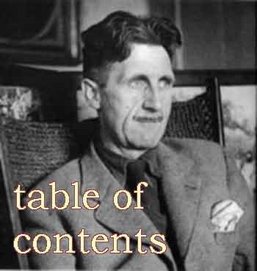 So many types of Jews, so little clarity
So many types of Jews, so little clarityBy Dennis Prager
http://www.JewishWorldReview.com Among the most frequently asked questions about Jews are: Why are Jews overwhelmingly liberal? Why are so few religious?
Before answering the question of why Jews tend toward the Left — and before proceeding with any of our analysis of Jews — it is necessary to understand the various groups that comprise the Jewish people.
In the most general sense, Jews fall into two categories: those who identify as Jews and those who do not (or do so only when forced to do so by outsiders). The latter may be called "non-Jewish Jews," a term coined by an early 20th-century Jewish radical, Isaac Deutscher, to describe himself.
The non-Jewish Jew is someone who is born to a Jewish parent but who chooses not to identify with either the Jewish community or Judaism. Such a person is not necessarily hostile to Jews; but these Jews often play an important role in society. Examples are the many college professors who have Jewish family names but who do not identify in any way with the Jewish community or religion. As we shall see when attempting to explain Jewish liberalism and leftism, their lack of identity — often complemented by an antipathy to American national identity — helps explain most of their social and political views.
I do not include among non-Jewish Jews those people who are born Jewish and convert to another religion, such as Christianity. These are Christians who happen to be born Jews, not non-Jewish Jews.
The second category of Jews consists of Jews who do identify as Jews — meaning that they identify with the Jewish community or with Judaism or with both.
Among identifying Jews are secular Jews and religious Jews.
An identifying Jew can be a secular, even an atheistic, Jew. Indeed the founders of the modern state of Israel were secular Jews, men and women whose entire being was suffused with Jewish identity, but who were completely irreligious. They strongly believed, as did the founder of modern Zionism — the completely secular Theodore Herzl — that the Jewish people needed to live in their homeland just as the French or English needed to live in their countries.
Given that the basis of Jewish peoplehood and identity is religious — Abraham became the first Jew by virtue of his belief in the one God; Moses is a thoroughly religious figure who brings the Jews to the borders of a divinely promised land, Israel; and the entire founding history of the Jews is contained in a religious work, the Hebrew Bible — the notion of a secular Jew identifying as a Jew is intellectually inconsistent. But that has not mattered to the many Jews who dropped Jewish beliefs yet remained committed to their Jewish identity and to the welfare of the Jewish people.
For some Jews, Jewish identity is so strong that no matter what their religious views, they wish to continue to identify as Jews. This is not only true of secular identifying Jews. At the other end of the religious spectrum are a small number of Jews who convert to Christianity and who also do not wish to relinquish their identification as Jews (thus calling themselves "Messianic Jews" and "Jews for Jesus" rather than "Christians").
Finally, among religiously identifying Jews, there are three major religious denominations — Reform, Conservative and Orthodox. Roughly speaking, the Orthodox believe in the divine origin of both a Written Law (the Torah) and an Oral Law (found in the Mishnah, the earliest part of the Talmud). They do not believe these (or, for the most part, rabbinic) laws can be changed. The Conservative movement believes the laws should be observed but that Conservative rabbis can change laws, and it does not affirm the divine authorship of Scripture. The Reform movement does not believe in the divine authorship of Scripture, does not believe that any of the laws (except universally ethical ones) are binding, and regards every Jew as an autonomous unit who accepts from Judaism only what is meaningful to him/her. Sometimes, the distinction between Reform and secular Jews is not obvious.
Among the reasons it is so important to understand these types of Jews is this: The great majority of Jews who affect the world are either non-Jewish Jews or Jews with minimal Jewish identity, and very rarely have Jewish religious faith or religious values. That is why all talk about "Jewish control" of Hollywood or of media or of anything else is meaningless. A disproportionate number of powerful figures in these professions and in academia may have been born to a Jewish parent, but most of them have no Jewish identity and they surely do not work on behalf of any Jewish interest. When was the last pro-Israel movie made, for example?
However, given the influence of non-Jewish Jews on society — in the arts, the university, the media — it is fair to say that a Jewish revival among Jews is in both the Jews' and humanity's interest.








No comments:
Post a Comment